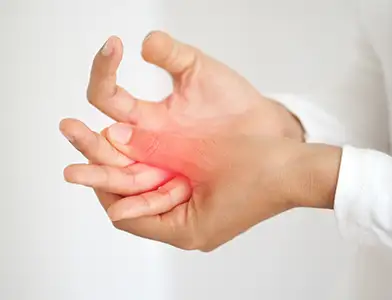Inability to Grasp with the Hands: Causes, Symptoms, and Treatments

Inability to grasp with the hands can be caused by various medical conditions affecting the nerves and joints. This can include carpal tunnel syndrome, diabetic neuropathy, osteoarthritis, and stroke. These issues can lead to symptoms like pain, tingling, numbness, and weakness. Understanding the causes and symptoms is crucial for diagnosis and treatment.
Diagnostic techniques may involve physical exams and imaging tests. Treatment options range from non-surgical methods like medications and physical therapy to surgical interventions.
Understanding Hand Weakness
Hand weakness can be a debilitating condition caused by various underlying factors affecting the nerves and joints. Understanding the potential causes and symptoms of hand weakness is crucial in order to effectively manage and treat the condition.
Causes of Hand Weakness
- Carpal Tunnel Syndrome
- Neuropathy Diabetic and Peripheral Neuropathy
- Osteoarthritis and Rheumatoid Arthritis
- Radiculopathy and Spinal Issues
- Herniated Disc and Other Spinal Problems
- Stroke and Other Neurological Conditions
Each of these conditions can lead to weakness in the hands due to nerve compression, joint inflammation, or neurological disorders.
Symptoms to Watch For
Common symptoms associated with hand weakness include:
- Pain and Tingling
- Numbness and Weakness
These symptoms can vary in intensity and duration, impacting daily activities and quality of life.
By recognizing the causes and symptoms of hand weakness, individuals can seek appropriate medical attention and explore treatment options to address the underlying issues contributing to their condition.
Diagnosis Techniques
Physical Examination
When diagnosing hand weakness, a physical examination is often the first step. This may include strength and sensation testing to assess muscle function and nerve response.
- Strength and Sensation Testing
- Range of Motion Assessment
Imaging and Electrophysiological Tests
Imaging and electrophysiological tests provide further insight into the underlying causes of hand weakness. These tests can include MRI and CT scans as well as nerve conduction studies.
- MRI and CT Scans
- Nerve Conduction Studies
Nerve conduction studies assess the speed and consistency of nerve signals, helping to pinpoint areas of nerve damage or dysfunction contributing to hand weakness.
Treatment Options for Hand Weakness
Non-Surgical Treatments
When addressing hand weakness, non-surgical treatments play a vital role in improving symptoms and function. These options include:
- Medications and Anti-Inflammatory DrugsMedications like pain relievers and anti-inflammatory drugs are commonly used to manage hand weakness associated with conditions such as arthritis and neuropathy.
- Lifestyle Modifications and Activity ChangesAdopting a healthy lifestyle with proper nutrition and regular exercise can help improve hand strength and overall function.
- Physical TherapyPhysical therapy exercises and techniques can promote hand mobility, strengthen muscles, and alleviate pain associated with hand weakness.
- Fitting and Using FérulasUtilizing splints or braces can provide support to weakened hands, assist with hand positioning, and reduce strain on affected joints.
Frequently Asked Questions (FAQs)
What causes the inability to grasp with the hands?
The inability to grasp with the hands is often caused by peripheral neuropathy, which results from damage to the peripheral nerves. Common causes include diabetes, nerve compression, autoimmune diseases, carpal tunnel syndrome, and certain medications.
How is the inability to grasp with the hands diagnosed?
Diagnosis involves a comprehensive medical history, physical examination, and diagnostic tests such as nerve conduction studies, electromyography (EMG), and blood tests to identify the underlying cause of the weakness and loss of function.
Can lifestyle changes help with the inability to grasp with the hands?
Yes, lifestyle changes such as maintaining a healthy diet, engaging in regular exercise, managing blood sugar levels (for diabetics), avoiding alcohol, and quitting smoking can help manage and reduce symptoms of peripheral neuropathy.
Is the inability to grasp with the hands a serious condition?
Persistent or severe inability to grasp with the hands may indicate a serious underlying condition such as peripheral neuropathy and should be evaluated by a healthcare professional. Early diagnosis and treatment can prevent further complications and improve function.
Should I see a specialist for the inability to grasp with the hands?
Yes, it is advisable to see a specialist, such as a neurologist, occupational therapist, or pain management expert, if you experience persistent or worsening inability to grasp with your hands. They can provide a thorough evaluation and recommend appropriate treatments.